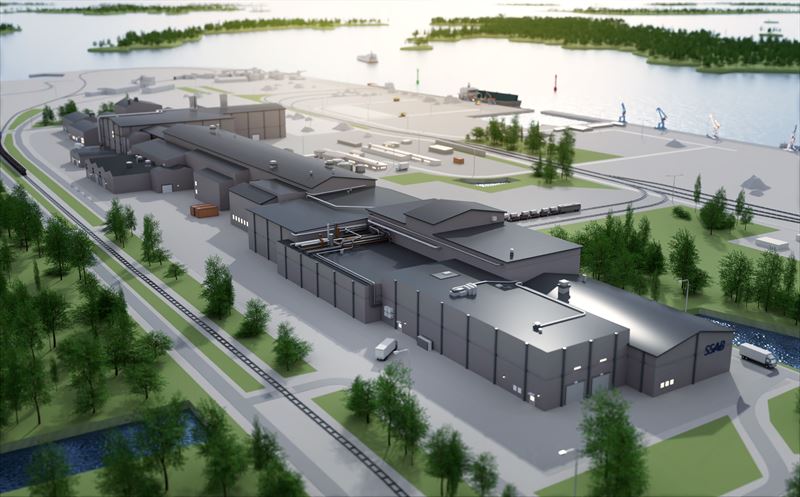
SSAB has received the necessary permit from the Land and Environmental Court in Umeå to build and operate a mini-mill in Luleå, Sweden, that will replace the current steel plant. The permit will enable a technology shift that will have significant positive effects on the environment and the climate. It will also allow SSAB to meet the high demand for our unique steels and strengthen our future competitiveness.
“This is a big day for us at SSAB and for the transformation to fossil-free steel production in Sweden. Now, we can proceed with an investment that will result in reduced climate impact of national significance. At the same time, we safeguard jobs in Luleå, create a more flexible and cost-effective production and strengthen our and our customers’ competitiveness with a wider offering of unique premium products,” says Johnny Sjöström, president and CEO at SSAB.
The plan is to decommission the current blast furnace-based production system once the mini-mill with electric arc furnaces, rolling complexes, and further processing is running at full capacity. The investment will strengthen SSAB’s leading position in the green transition of the steel industry, with a focus on special and premium steels produced with close to zero fossil carbon emissions. The investment will lead to a better cost position, higher efficiency, shorter lead times, and the elimination of CO2 costs. The mini-mill will run on fossil-free electricity and be supplied with a mix of fossil-free sponge iron produced with the HYBRIT technology (hydrogen reduction of iron ore) and recycled scrap as the raw material.
“This is an important step toward achieving both our own and Sweden’s climate goals, and the sooner the transformation happens, the better it will be for the climate and for the environment. We have gone through an extensive process with this application and subsequent correspondence, and we are very pleased that it has now resulted in a permit,” says Sara Arvidson, director of Environmental Permits at SSAB’s Transformation Office.
The transformation in Luleå will result in significant reductions of emissions to air and water, increase resource efficiency and remove about 2.8 million tonnes of annual carbon dioxide emissions. In total, SSAB’s transformation will enable a reduction of 10% in Sweden’s total carbon dioxide emissions, of which 7% comes from Luleå and 3% from the transformation in Oxelösund.
Construction preparations will now continue with detailed engineering and the building permit process.
For further information, please contact:
Anna Molin, Press Officer at SSAB, anna.molin@ssab.com, phone: +46 76 110 46 76

